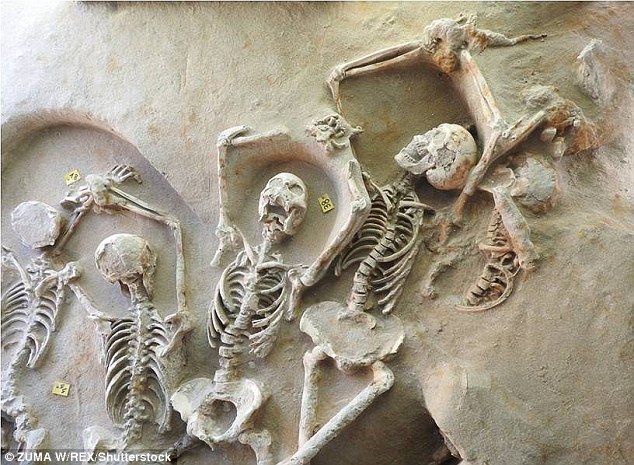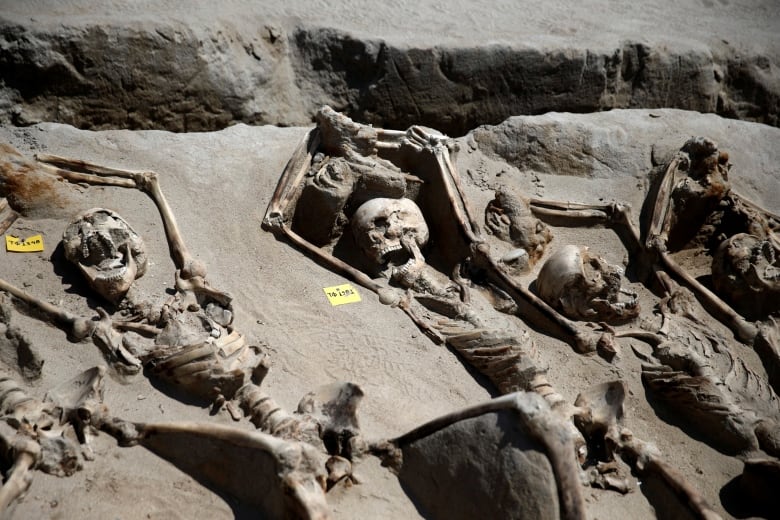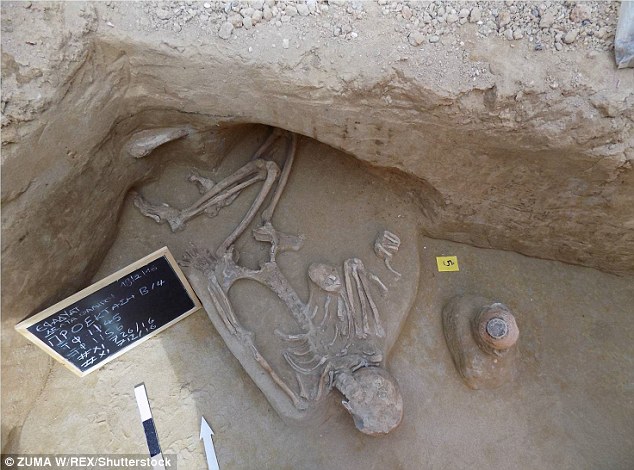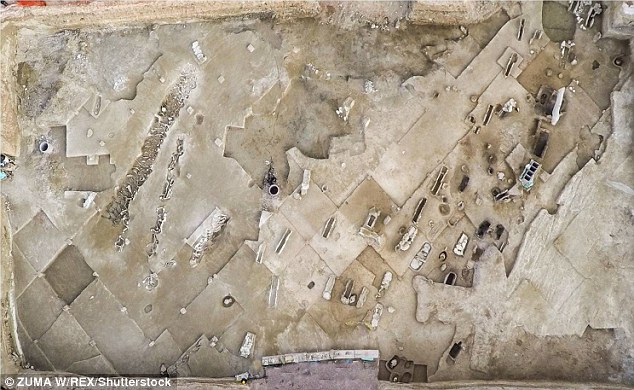Archaeologists have discovered 80 ancient male skeletons in a burial site, dating back to the 7th century BCE, in the Faliro river delta region, southern Athens. The skeletons were found arranged with their hands tied above their heads. A hypothesis suggests that these individuals were rebels from 7th-century BCE Greece, attempting to stage a coup against the government.
Two mass graves containing these ancient remains were identified, and the bones were positioned next to each other, with arms bound high above the heads. Additionally, an arrow found lodged in the shoulder of one skeleton indicates that these individuals, likely young rebels, may have been captured as prisoners of war and subsequently executed.

These discoveries were made at the site under examination for the construction of the Stavros Niarchos Cultural Center. Acknowledging the significance of this find, the Greek Ministry of Culture has stated that they will continue to conduct a more thorough investigation.
Two small vases found among the skeletons allowed archaeologists to speculate that the tomb dates back to the mid-7th century to 625 BCE, a period of significant political unrest in Greece.
Some skeletons were found in a prone position, while others were supine. In total, there were 36 hands bearing clear signs of being bound with iron. One of the last men discovered in March was also found with his feet securely tied with a rope. The question of why the arms of these men were tied above their heads instead of behind them, as is customary, remains a mystery to historical researchers.

The skeletons were found with their hands tied above their heads instead of behind their backs as is customary.

Two small vases found allowed archaeologists to speculate that the tomb dates back to the mid-6th century BC, a period of political unrest in Greece.
Archaeologists state that the teeth of the deceased are well-preserved, indicating that they were young and healthy individuals before their deaths. This enhances the hypothesis that these individuals were followers of Cylon, a nobleman who once won the Olympic Games. According to ancient historians Herodotus and Thucydides, Cylon attempted a coup to overthrow Athens in the 7th century BC. The coup failed, and Cylon’s supporters were forced to retreat and seek refuge at the Acropolis – one of Greece’s major tourist attractions today. The rebels, after receiving assurances for their safety from the government, surrendered, but in the end, they couldn’t preserve their lives.

A tomb containing unusually well-preserved horse skeletons was also discovered during the construction of the Stavros Niarchos Cultural Center.
As of now, only a portion of the Faliron plain has been excavated, with certainly many more mysteries lying beneath the ground of one of the world’s most developed ancient civilizations.